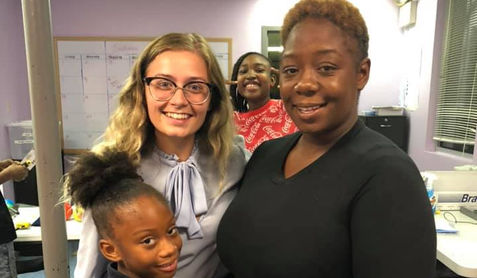Community Engagement & Enrichment
Hemenway Center Workshops and Activities
Family Nights
Voyage Family Nights are a fun-filled opportunity for the Hemenway Center to open our doors to the families we serve on Community Outreach Advocate model caseload and the community to spend time together, share stories, play games, and enjoy delicious food!
CPR/Stop the Bleed/AED Workshops
Goal
Establish a public access defibrillation and Stop the Bleed equipment and education program with the Voyage program at the Hemenway Center. These skills and equipment will not only potentially save lives and support feelings of empowerment that come with knowing what to do in the event of an emergency, but through certification in CPR, it will provide some basic marketable skills for the local youth and spur future interests in the field of healthcare.
One of the goals of the Voyage Health and Wellbeing Committee is to equip residents in the area with the certification/training in CPR, Stop the Bleed, AED, and First aid, as well as access to the appropriate resources in cases of emergencies. The committee received sponsorship from NHRMC to train and educate at least 60 residents. The training will occur throughout the year and last 3 hours each.
Background
Public Access Defibrillation (PAD): Numerous scientific studies have proven that rapid defibrillation is the single most important factor affecting survival from sudden cardiac arrest in adults. Yet, the most socioeconomically deprived communities had the highest incidence of out of hospital cardiac arrests, and the least availability of AEDs. This provides an impetus for targeted AED placement in areas of higher deprivation (Bridget, et al. 2019). Compared to people who live in predominantly white neighborhoods, those who live in predominantly black areas are much less likely to receive CPR or defibrillation from a bystander when their heart suddenly stops.
Stop the Bleed: Launched in October of 2015 Stop the Bleed is intended to cultivate grassroots efforts that encourage bystanders to become trained, equipped, and empowered to help in a bleeding emergency. Self-reported hemorrhage control training increases the likelihood of correct tourniquet placement. Prior training increases willingness to assist in controlling hemorrhage. One study found that participants were more than twice as likely to provide first aid if a bleeding control kit is available (Jacobs, et al. 2016).



